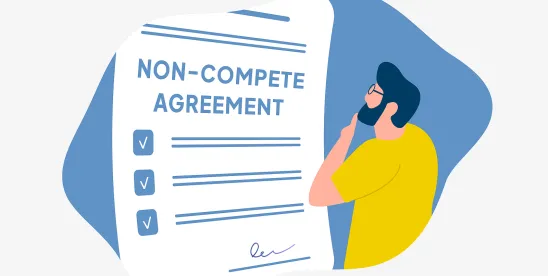On January 26, 2023, Cigna Corp. (“Cigna”) sued CVS Health Corp. (“CVS”) and its newly hired chief product officer Amy Bricker (“Bricker”), in the US District Court for the Eastern District of Missouri, for allegedly violating her non-compete agreement with Cigna. The complaint was filed three (3) weeks after the US Federal Trade Commission (“FTC”) proposed a ban on non-compete clauses in employment contracts to keep workers from switching jobs. The FTC would later announce, on April 23, 2024, the issuance of a final rule banning employers from entering into, enforcing, or attempting to enforce post-employment non-compete clauses with employees, subject to limited exceptions, and invalidating all existing non-competes with a narrow exception for some senior executives.
Bricker worked at Cigna as the head of Cigna’s Express Scripts pharmacy benefits unit prior to leaving Cigna for CVS. In its complaint, Cigna claims that CVS poached Bricker in a “desperate effort” to retaliate against Cigna for securing a contract previous managed by CVS. Cigna claims that the contract would be a $2 billion decline in CVS’s 2024 revenue. Cigna also states in the complaint that Bricker received a high six-figure bonus as a result of her contribution to the contract and was “privy to the business’s most highly sensitive information,” including supply chain, product development, and sales strategy.
Moreover, because Bricker was one of only sixteen (16) employees, at the time, out of 70,000 Cigna employees worldwide that was bound to this non-competition agreement, which is only reserved for the “most senior executive leaders,” Cigna argues that the non-compete is valid. Additionally, the complaint states that Bricker executed lucrative stock grant agreements in exchange for entering the restrictive covenants and was fully aware of the conditions of participating in the equity plans year after year. Additionally, Cigna explains that Bricker’s decision to proceed with the CVS position constitutes a willful disregard of Cigna’s trade secret rights in violation of the Missouri Uniform Trade Secrets Act.
Cigna sought a temporary restraining order and preliminary injunction to prevent Bricker from starting her new position at CVS on February 3, 2023. On February 17, 2023, the US District Court for the Eastern District of Missouri granted Cigna a temporary restraining order preventing Bricker from starting the new position and on June 5, 2023, approved of a preliminary injunction pending a final determination on the merits of the case. Bricker and CVS appealed the preliminary injunction to the US Court of Appeals for the Eighth Circuit. Bricker and CVS argued that the non-compete agreement was overbroad, violated Missouri laws (which governed the non-compete agreement) and that Cigna’s home-delivery pharmacy versus CVS’s brick-and-mortar pharmacies were not competitors.
On June 5, 2024, the US Court of Appeals for the Eighth Circuit issued an opinion disagreeing with Bricker and CVS. They found that Cigna and CVS were each other’s largest direct competitors. Moreover, because Bricker conceded knowledge of a Cigna trade secret, the Eighth Circuit found that the harms that Cigna could suffer from the trade secret being disclosed was substantial as compared to the harms that Bricker and CVS would suffer under the injunction, therefore, there was enough support for Cigna’s arguments of irreparable harm. More specifically, when assessing the balance of equities, the Eighth Circuit stated that the harm to Bricker and CVS in comparison to Cigna was comparatively small because CVS agreed to pay Bricker’s full salary (approximately $10 million) for the two-year duration of the non-compete, even if Bricker does not work for CVS, and CVS indicated it would not penalize Bricker in any way despite her inability to work. The Court of Appeals went on to note that Bricker could have chosen to move from Cigna to a company outside of healthcare which would have posed a less serious threat to Cigna in protecting its interests, considering Bricker’s intimate knowledge of Cigna’s inner workings. Therefore, the Court concluded that “Cigna met its preliminary burden and demonstrated a ‘fair chance’ that its non-compete agreement with Bricker was reasonable and enforceable.” As such, the Court of Appeals held that the district court did not err in granting Cigna’s request for a preliminary injunction and affirmed the judgment.
The FTC’s final rule banning non-compete clauses is not instructive in this case. While the FTC banned non-compete clauses with employees, the issuance carves out an exception for senior executives who are in policy-making positions and earn at least $151,164 in the preceding year. Cigna claims that Bricker was a highly visible and influential leader of the company, giving presentations, including to Cigna’s Board of Directors, investors and even Congress, and Bricker’s stock options alone are worth $1,555,879. As such, the Cigna-Bricker non-compete agreement would fall within the senior executives exception of the FTC non-compete ban.




 />i
/>i

